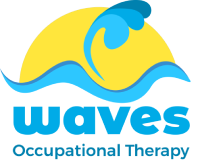
The Movement ABC assessment is a valuable tool employed to detect delays or impairments in children’s motor development. Occupational therapists utilise this assessment to evaluate whether such delays or impairments significantly affect a child’s performance in various activities, both at home and in the school environment.
The Movement ABC assessment takes into account the influence of impairments or developmental delays on a child’s ability to engage effectively in school and home activities.
Where and How the Movement ABC Assessment is Conducted
The Movement ABC assessment can be delivered in various settings, such as clinics, homes, or schools. It’s carried out by qualified occupational therapists (OTs) who have received specialised training. Moreover, this assessment is internationally recognised and used by healthcare professionals worldwide.
Conditions That May Indicate the Need for a Movement ABC Assessment
Children who may benefit from a Movement ABC assessment often exhibit the following symptoms:
- Clumsiness
- Lack of coordination
- Challenges with smooth, continuous movements
- Frequent falls or trips
- Fine motor difficulties
- Difficulty with activities like running, jumping, hopping, or other gross motor tasks
- Possible issues with muscle strength or tone
- Visual perception challenges
- Poor hand-eye coordination
- Impaired function in one limb due to stroke
When you observe your child experiencing challenges with outdoor activities, games needing balance, throwing, catching, or other physical movements, it’s prudent to consider an Occupational Therapy assessment. In these situations, our team is ready to offer valuable support.
Conditions Assessed by Movement ABC
Movement ABC assessments are commonly advised for conditions that impact movement. Additionally, these assessments play a pivotal role in understanding and dealing with such conditions. These conditions include:
- Dyspraxia
- Cerebral palsy
- Developmental Coordination Disorder
- Developmental Delay
- Head Injury
- Multiple Sclerosis
- Rett Syndrome
- Stroke
- Spina Bifida
Nevertheless, if your child experiences challenges with activities such as running, hopping, jumping, and balancing, even without a specific diagnosis, don’t hesitate to reach out to us for support.
What the Movement ABC Assessment Evaluates
Occupational therapists use the Movement ABC assessment to gain insights into how movement difficulties impact your child’s daily life, both at school and at home. This assessment includes a detailed discussion of how the Movement ABC symptoms affect function, accompanied by explanations.
Impact on School Environment
Movement ABC also considers how movement challenges affect a child within the school setting. For instance, during physical education or sports lessons, a child with movement challenges may struggle to compete at the same level as their peers and may even experience isolation due to physical challenges.
Impact on the Home Environment
Movement ABC will look at how movement challenges can influence activities at home. This includes physical and behavioural impacts on the time required to complete tasks. For example, difficulty moving smoothly and successfully may reduce a child’s motivation to engage in physical activities, possibly leading to a more sedentary way of life. This, in turn, can affect mood and overall confidence. OTs work with you to assess the areas of concern at home and provide a treatment plan to address them.
Impact of Movement ABC on Physical Function
The Movement ABC highlights how motor challenges affect physical function. As your child develops, learning new movement patterns becomes crucial. The assessment reveals the impact of these challenges on your child’s ability to perform crucial activities such as dressing, running, and playing. Based on the assessment results, we can create an individual treatment plan.
Social and Behavioural Implications
Beyond physical impacts, Movement ABC considers how it affects a child’s behaviour, offering insights into possible reasons for different behavioural challenges in various settings. Children with movement challenges may become distressed or easily upset, which can disrupt home life. The assessment helps identify these issues.
Information Provided Following an Assessment
After the assessment, the OT will discuss the results and how it impacts on your child’s needs at home and school. Upon request, you can receive a detailed Movement ABC report with an analysis of how the condition affects your child’s life, a treatment plan, and recommendations for improving daily living.
Treatment Following an Assessment
Occupational therapists offer a range of treatments, including:
- Gross motor groups
- One-on-one therapy
- Movement-based games
- Play therapy
- Education to support function
In summary, Movement ABC looks at how your child’s movements relate to daily activities and roles, considering the environment, the tasks involved, and the individual. Our trained OTs will create an individual treatment plan based on the results. If you’re interested in a Movement ABC assessment or have any questions, please contact us via email.
